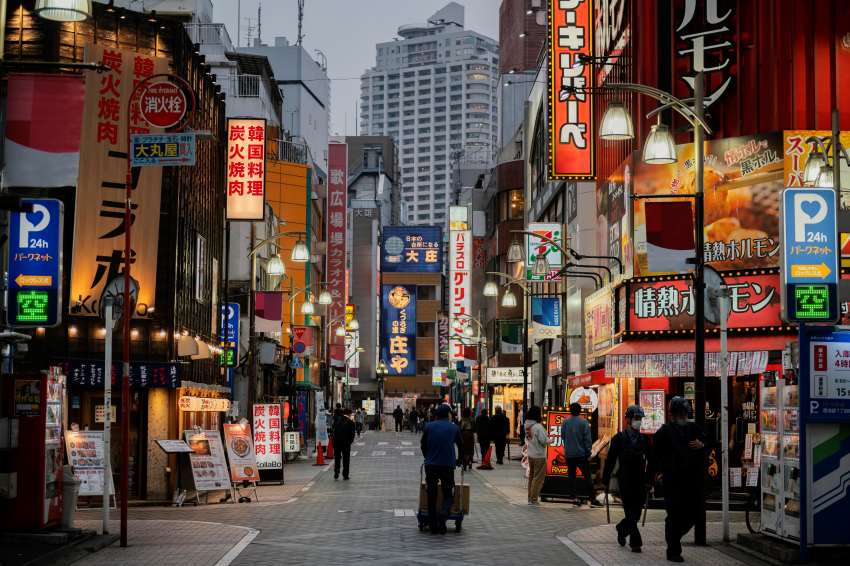Published on
September 7, 2025
There has been a noticeable increase in complaints from international visitors to Japan, one of the most visited countries in the world. Consultation requests have increased as a result of problems with lodging, expensive goods, and even fake goods as the tourism sector continues to grow. A record number of enquiries were received by Japan’s National Consumer Affairs Centre (NCAC), suggesting that the visitor experience needs to be improved and awareness raised.
A Surge in Inquiries to the NCAC
The NCAC has long served as a hotline for tourists facing various challenges during their stay in Japan. In fiscal 2024, the hotline recorded a staggering 388 calls, a significant increase from the 161 additional calls in the previous year and a massive jump from the previous high of 264 calls in 2019. This increase can be attributed to the surge in international visitors to Japan, especially as tourism rebounded after the pandemic.
The NCAC has been actively providing consultations since its establishment in December 2018. The hotline offers assistance in multiple languages, including English, Chinese, Korean, Thai, Vietnamese, French, and Japanese. This multilingual service helps ensure that tourists from diverse backgrounds have access to necessary support, particularly when navigating consumer issues abroad.
Breakdown of Complaints: Where the Issues Lie
Most of the complaints received by the NCAC revolved around accommodation-related issues. Tourists often reported finding rooms in hotels and inns to be much smaller than advertised, while others complained about poor cleanliness, such as garbage or hair left in their rooms. These incidents have caused frustration, as visitors were left with a less-than-pleasant experience than they had anticipated based on online photos.
Another area of concern has been the rough handling of luggage, which led to damaged items, especially fragile purchases made by tourists. Visitors have also expressed dissatisfaction with what they described as “dual pricing” at restaurants. Many foreign tourists found themselves charged more than Japanese customers for the same service, and the discrepancy was often exacerbated when they were asked to pay high service fees—sometimes as much as 20 per cent—simply because they were international visitors.
A further complaint involved discrepancies in menu prices. Foreign-language menus often listed prices that were 10 to 20 per cent higher than those listed in Japanese versions. Additionally, tourists were reportedly unaware that they could not take leftovers home from restaurants, which led to further frustration among those unfamiliar with the local dining etiquette.
Fake goods have also become a significant issue, with tourists finding themselves purchasing counterfeit luxury brand items. Some have sought guidance from the NCAC on how to return these goods and demand refunds. Concerns were raised particularly over duty-free shops, where tourists bought what they believed to be genuine, healthy items, only to later discover that the products were not as advertised.
The Context of Japan’s Tourism Boom
The rise in complaints is not entirely unexpected, given the steady increase in the number of foreign visitors to Japan. According to the Japan National Tourism Organisation (JNTO), approximately 24.96 million tourists visited Japan between January and July 2024, marking an 18.4 per cent increase from the previous year. China remained the largest source of international visitors, followed closely by South Korea, Taiwan, and the United States.
The total number of visitors to Japan in 2024 reached 36.87 million, surpassing the previous record set in 2019 by nearly 5 million people. This surge in tourists has brought with it a rise in consumer-related complaints, further highlighting the need for better consumer protection for international visitors.
Record Spending by Foreign Tourists
As the number of tourists continues to climb, so does their spending. In 2024, spending by foreign tourists in Japan hit a record high of 8.13 trillion yen (approximately $54.99 billion). The largest spending group was Chinese tourists, who accounted for a total of 1.73 trillion yen, followed by tourists from Taiwan, South Korea, the United States, and Hong Kong. These five regions collectively accounted for a significant portion—65.7 per cent—of the total spending by inbound tourists.
On average, each foreign tourist spent about 227,000 yen during their trip. This amount was broken down into accommodation costs (77,000 yen), shopping expenses (66,000 yen), and food and drinks (49,000 yen). These figures not only reflect the growing volume of visitors but also demonstrate the substantial economic impact of tourism on the Japanese economy.
Measures Taken to Address Complaints
In response to the growing number of complaints, the Japanese government has been taking steps to improve the experience for foreign visitors. The National Consumer Affairs Centre continues to offer advice and solutions through its multilingual hotline, providing a vital resource for international tourists who encounter problems during their stay.
In addition, the Japanese government has set an ambitious goal to attract 60 million visitors by 2030, with a target of generating 15 trillion yen in tourism revenue. As part of this effort, the government has been working on enhancing tourism infrastructure and improving consumer protection services to ensure that visitors have a positive experience while visiting Japan.
The Future of Tourism in Japan
It is clear that handling customer complaints will be a major challenge going forward as the number of foreign visitors to Japan keeps growing. Japan will need to put policies in place that safeguard the rights of foreign tourists as problems with lodging, price differences, and fake goods become more common. By doing this, Japan can make sure that the surge in tourism results in both financial gains and a better travel experience for all visitors.
Travellers seeking more information can visit the official NCAC website, which provides answers to commonly asked questions and helpful advice on handling consumer-related concerns in Japan. Additionally, the government is working to enhance its services, making it simpler for foreign tourists to get assistance when they need it.
